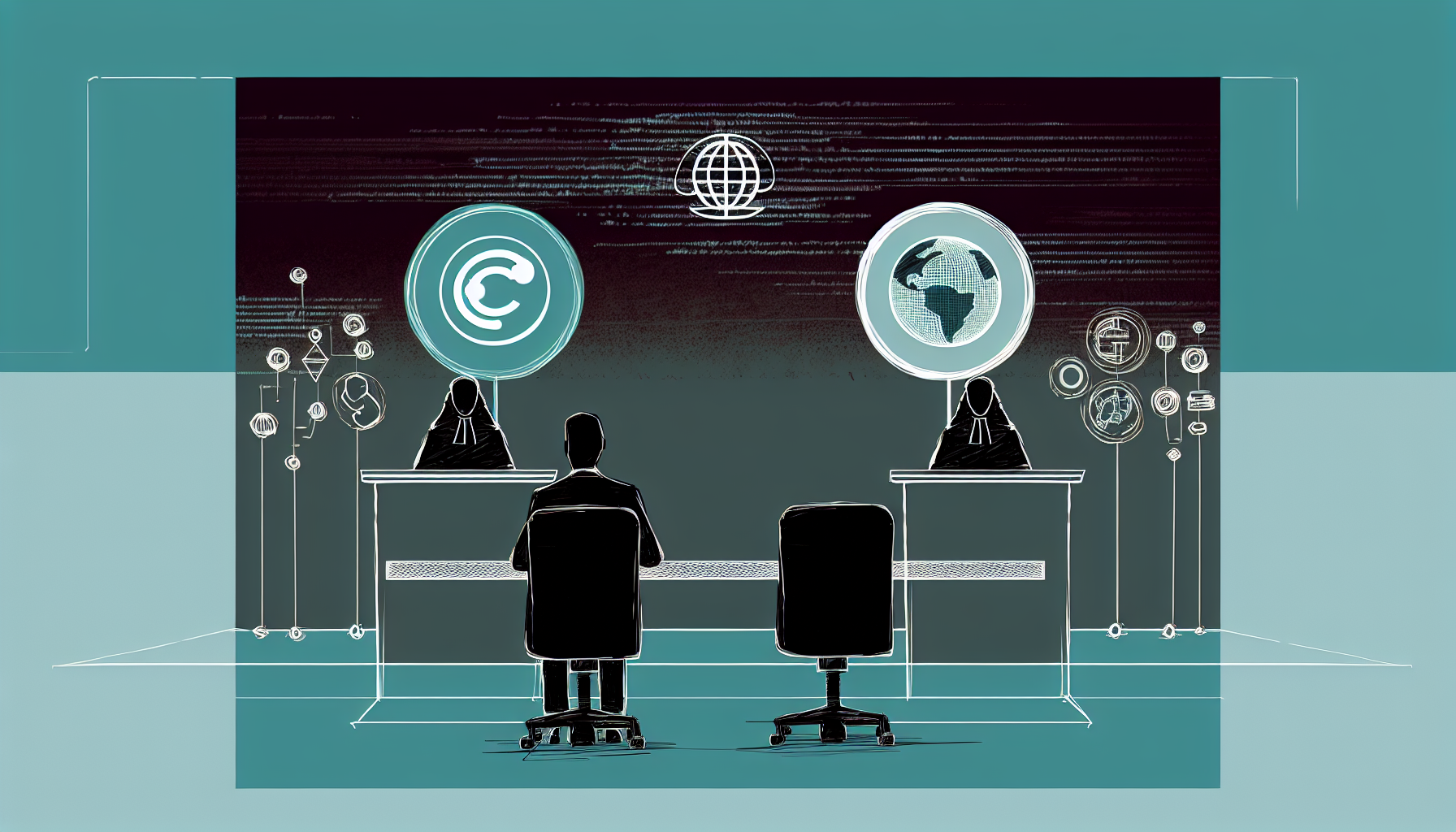# Brave vs. News Corp: A Landmark Case for AI and Copyright
In a rapidly evolving digital landscape, the intersection of artificial intelligence (AI), search technologies, and copyright law is becoming increasingly complex and contentious. One of the most significant legal battles shaping this domain involves Brave Software, known for its privacy-centric browser, and News Corp, a global media conglomerate. This case not only highlights the challenges of integrating AI with traditional business models but also sets a precedent for future legal frameworks in the digital content and technology sectors.
Understanding the Brave vs. News Corp Case
#
The Parties Involved
Brave Software is a tech company that has garnered attention for its web browser, which emphasizes privacy and ad-blocking capabilities. In contrast, News Corp owns a variety of media outlets and content creators, making it a heavyweight in the media industry.
#
The Core Issue
The legal confrontation began when Brave Software alleged that News Corp was misusing its dominant position to favor its own content in search results, thereby stifling competition and innovation. Brave's argument centers around the claim that News Corp's actions not only harm competitors but also restrict consumer access to a diverse range of information.
Legal and Ethical Implications
#
Copyright Concerns
At the heart of the dispute is the question of how AI can be used to crawl, index, and display content owned by different entities without infringing on copyright laws. News Corp's control over a vast array of copyrighted content gives it leverage against technologies that rely on broad access to information, such as search engines.
#
Antitrust Issues
The case also touches on antitrust law, particularly how large corporations manage their market influence. Brave's lawsuit implies that News Corp's practices could be considered anti-competitive, as they potentially prevent smaller or newer companies from gaining market traction.
#
Ethical Considerations
There is an ethical dimension to this case, focusing on the balance between copyright protection and the public's right to access information. This is a critical issue in an age where AI technologies can potentially reshape access to and the distribution of information.
Impact on the Tech Industry
#
Innovation and Competition
This case could have profound implications for how new technologies are developed and implemented. If the outcome favors Brave, it could encourage more innovation, particularly in AI-driven applications like search engines, by ensuring that new entrants have fair access to essential data.
#
Business
Optimize your business strategy with our Elite Membership for exclusive access to case studies and expert consultations.
Models and Strategies
Companies may need to rethink their strategies around data usage, partnerships, and competitive practices. This case could lead to more stringent rules on how companies collect, use, and share data, which could alter the business landscape significantly.
Case Studies and Examples
#
Example 1: Google and the European Union
Google has faced similar issues in the European Union, where it was fined for prioritizing its own shopping service in search results. This precedent demonstrates the kind of regulatory scrutiny that might influence the Brave vs. News Corp case.
#
Example 2: Microsoft and LinkedIn
When Microsoft acquired LinkedIn, there were significant discussions about how Microsoft could leverage LinkedIn's data without breaching privacy and antitrust laws. This example highlights the complexities of managing large datasets while respecting legal and ethical boundaries.
Future Directions
#
Legal Precedents
The outcome of this case will likely influence future legal standards for AI and copyright interaction. It may lead to new laws or amendments to existing ones, particularly around digital content and technology interoperability.
#
Technological Advancements
As AI continues to advance, its capabilities will increasingly come into conflict with traditional copyright and privacy laws. This case could push for more nuanced technology regulations that consider the unique capabilities and challenges of AI systems.
#
Market Dynamics
Depending on the outcome, the market dynamics in the tech industry might shift, potentially opening up more opportunities for smaller players or, conversely, cementing the dominance of established giants depending on how regulations are framed post-case.
Further Reading
Expand your knowledge with these related articles from our experts:
- AI in School Surveillance: Safeguarding or Overstepping? - Dive deeper into digital innovation insights
- Geospatial AI: Niantic's Pivot to Redefine Mapping Tech - Dive deeper into digital innovation insights
- The Future of Satellite Networks: ESA's HydRON Project Explored - Dive deeper into digital innovation insights
- Citigroup's IT Strategy Shift: Impact on Tech Employment - Dive deeper into business strategy insights
Want exclusive access to advanced insights? Check out our Pro Membership for premium content and tools. Members get 50% off all digital products.
Conclusion
The Brave vs. News Corp case is more than a legal battle; it is a litmus test for the future of digital innovation, privacy, and information accessibility. Its implications extend beyond the parties involved, potentially reshaping the landscape of digital content, AI technology, and legal frameworks globally. As we continue to navigate these complex waters, the tech industry and regulatory bodies must work together to foster an environment that balances innovation with fairness and legal compliance.
